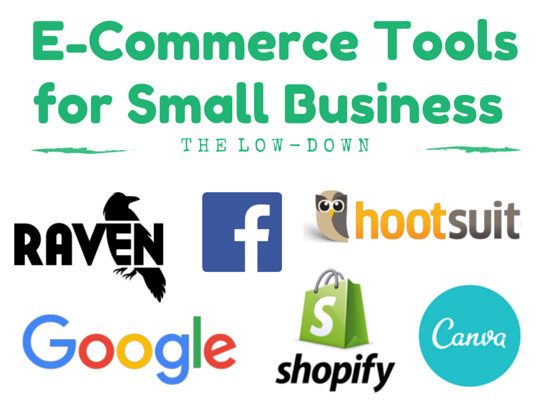
As a small online business owner, there are some nifty tools I depend on to maintain my e-commerce website. As a company owner, I have to worry about everything: marketing, quality control, finances, customer service, SEO and more. As far as running the online side of things, these tools can be extremely helpful.
1. Grammarly
Grammarly is a tool that I have only recently started using. The program allows you to double check for errors in any copy that you write which can consist of product descriptions, blog posts, emails and so forth. Grammarly checks for misspellings, punctuation issues, plagiarism and sentence structure. The system also helps with vocabulary enhancement and provides professional human proofreading. Well-crafted content is more likely to be appreciated and linked to by your audience. At $59.95 per quarter, Grammarly can be a powerful assistant.
Why it matters: Grammatical errors, limited vocabulary, and poor sentence structure may turn away readers and customers. From an SEO standpoint, improving your writing will likely lead to being considered as high-quality content by Google and other search engines.
2. Raven
Raven is a powerful (and fast) SEO tool that I prefer over Moz. The system is easy to use for beginners yet loaded with more involved tracking abilities for more savvy marketers. We use Raven to find broken links, missing alt tags, poorly written title tags, duplicate content, and other numerous errors.
Why it matters: Fixing website errors could save you from being algorithmically penalized by Google Panda. A few months ago, we fixed thousands of mistakes that could have been disastrous for our rankings during the last Google algorithm update. It’s good practice to maintain your website’s general health.
3. HootSuite
Hootsuite allows people to manage multiple social networks in an organized manner. Schedule posts, track engagement, maintain many profiles, generate leads and so much more. Personally, I’m into participating in social networks more organically which is why I hired a social networking service provider to handle all that for me. For business owners on a lean marketing budget, Hootsuite is an excellent way to monitor multiple channels of social networking. Why log into each and every network when you can work from one dashboard?
Why it matters: For now, social networking is low on the totem pole for delivering rankings, but that will likely change. We know Google loves Google+ and YouTube posts, and the search giant does implement Twitter feeds into their results. This trend will likely continue. Also, social networking can be an important method of building your brand. Many online businesses generate most of their sales from places like Facebook and Pinterest rather than Google.
4. Canva
I’m a little infatuated with Canva right now. Canva offers an incredible lineup of pre-designed templates for banners, Facebook headers, postcards, posters and almost anything else related to creating graphics. I would never suggest replacing human designers, but this tool truly does make it easy for non-designers to pop out some seriously professional-looking graphics. You can save designs as web graphics, PNG files or print quality PDF’s. In a recent post, I demonstrate how anyone can create a beautiful double-sided postcard in just a few minutes using Canva.
Why It Matters: There isn’t room for e-commerce websites with poor imagery especially now that we have an incredible tool like Canva at our disposal.
5. Shopify
There are countless e-commerce platforms out there. Shopify, BigCommerce, Volusion, Magenta and WooCommerce are only a handful of them. We selected Shopify as our solution due to their vast 3rd party apps, reliable hosting, wonderful API, and easy interface. Back in the day, we were using WordPress as the backbone of our e-commerce, but that was a costly decision when compared to the many solutions available.
Why it matters: Small online business owners should embrace a platform that focuses on e-commerce success. A tool like Shopify continues to improve their system while third party developers also create feature rich applications. Building your platform from scratch can be costly, and WordPress can cause a variety of problems if you are using it for more than a content manager. We fully understand both scenarios well since we’ve tried both.
6. Google Adwords
For our market, costs per clicks are at all-time highs. It’s tough to find valuable and profitable keywords these days. We’ve maintained a steady budget with Google Adwords since 2008, and there’s no doubt we are getting less bang for our buck now. We’d love to take that budget to a more cost-effective platform, but finding consistent results has been difficult. The key with Google Adwords is to measure ROI from a long term standpoint. We obsess over conversion rates in the last 30, 60 and 90 days.
Why it still matters: Google ads still contribute to sales and new customers and continues to work well for us. All online businesses must find a constant avenue of generating sales and bringing in new customers – even if you have to pay for it.
7. Facebook Advertising
Facebook is a must these days for most online business owners. However, we love the advertising aspects Facebook provides to small businesses. Aside from keeping up with our company page, we advertise products in many ways. We boost posts, retarget website visitors, search for new customers and so much more. The platform is an awesome method of gaining qualified traffic to any store.
Why it matters: Facebook is what Google was a decade ago. Traffic and leads are relatively inexpensive and can be hugely rewarding. E-commerce giants, like Shopify, offer internal ways to advertise products through Facebook effortlessly.
8. Google Webmaster Tools
Google Webmaster Tools (or Google Search Console) is essential to any online business. Google reports numerous aspects concerning your website. Google shows incoming links, penalties, security issues, duplicate pages, crawling errors, indexed pages and so much more. It is an excellent place to begin looking if you are noticing a drop in traffic or have underlying concerns over the health of your website.
Why it matters: It is information directly from Google involving the health of your site.
9. Google Analytics
Google Analytics is a valuable tracking tool that millions of websites owners are using. There is an astounding amount of information available that is critical to review and study.
10. MailChimp
Every e-commerce website needs an email marketing strategy of some sort. MailChimp is a sophisticated email solution that plays nice with almost any major application. We used MailChimp for years until we moved to Shopify. With Shopify, we feel another email solution, Soundest, does a better job at cooperating with Shopify. Otherwise, we would probably still be using MailChimp. There are also many other email platforms and third party email applications that can add dimension to any email marketing strategy.
Why it matters: Email marketing is critical in gaining sales, reconnecting with clients, converting visitors, building traffic and communicating brand awareness.


